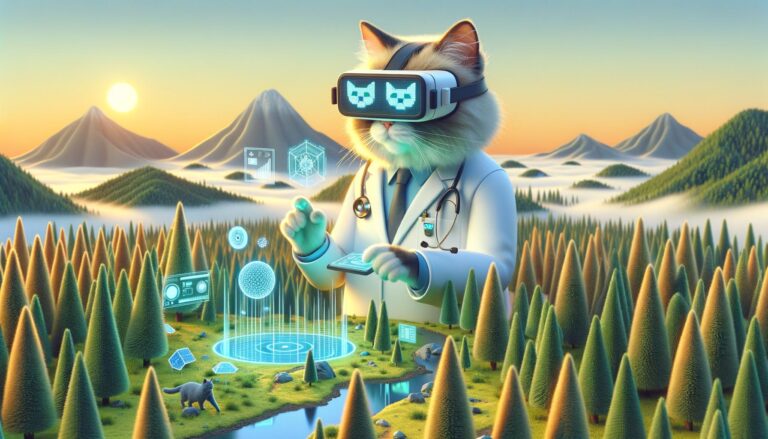Revolutionizing Healthcare with VR Training
Virtual reality (VR) is carving a significant niche in healthcare, especially through immersive training programs that offer a safe, repeatable learning environment. Just as VR is pivotal in high-risk fields like aviation and engineering, it’s becoming essential in healthcare for educating medical students and upskilling practitioners.
Industry forecasts, like those from Dimension Market Research, underscore this trend. They predict the global augmented and virtual reality market in healthcare will surge to $19.6 billion by 2033, up from $3.7 billion in 2024, reflecting a robust 20.2% compound annual growth rate (CAGR).
North America Leading the Way
North America is at the forefront of this expansion, accounting for 51.1% of the 2024 market revenue. Growth here is fueled by rapid technology adoption, substantial research and development investments, and supportive government policies, which collectively drive sectoral advancements.
VIRTUALEAP’s Pioneering Applications
Leading the charge in healthcare VR solutions is Virtuleap, which merges neuroscience, VR, and game design to confront cognitive disorders. According to Bebiana Moura, PhD, Head of Partnerships at Virtuleap, their solutions address the pressing need for interventions that can mitigate or delay cognitive decline, particularly Alzheimer’s.
Virtuleap’s offerings include the ‘Enhance’ and ‘Cogniclear’ platforms, which revolutionize traditional pen-and-paper cognitive assessments into engaging VR exercises. These programs encompass various exercises targeting multiple cognitive abilities, with ‘Cogniclear’ encompassing 14 exercises over seven cognitive domains.
Virtualeap continuously enhances these solutions through iterative prototyping and by leveraging localized patient data, particularly from regions like Portugal, to refine their tools.
FDA-Approval and the Future of XR in Healthcare
The road to widespread adoption of VR in healthcare involves navigating complex medical regulations, including approvals from bodies like the FDA. Presently, around 70 XR devices have received such approvals, covering applications from physical therapy to orthopedics.
Moura anticipates an expansion of FDA-approved XR applications, predicting that once these technologies are adopted for specific medical use cases, their broader implementation across various healthcare scenarios will follow.
As VR headsets become more affordable and prevalent, especially in the United States, their penetration into the healthcare market is expected to accelerate. Success will hinge on providing tangible, evidence-based outcomes to demonstrate the effectiveness of these XR solutions, particularly through clinical trials.
Moura emphasizes the importance of aligning XR technologies with the specific needs of healthcare providers and patients. To facilitate successful implementation, identifying internal champions within healthcare institutions to advocate for and integrate these technologies is crucial.












+ There are no comments
Add yours